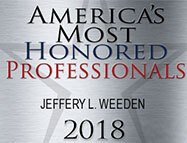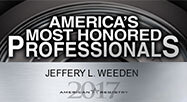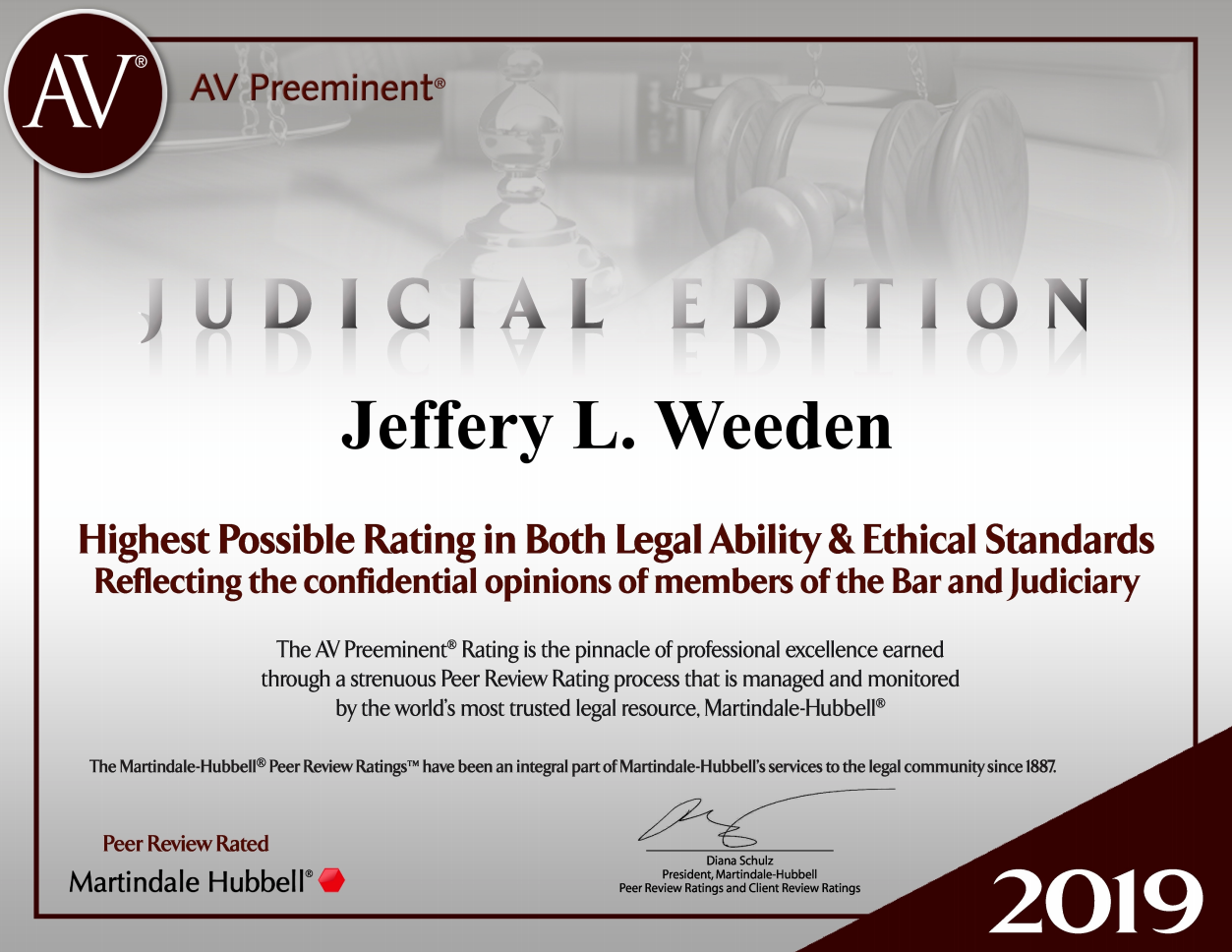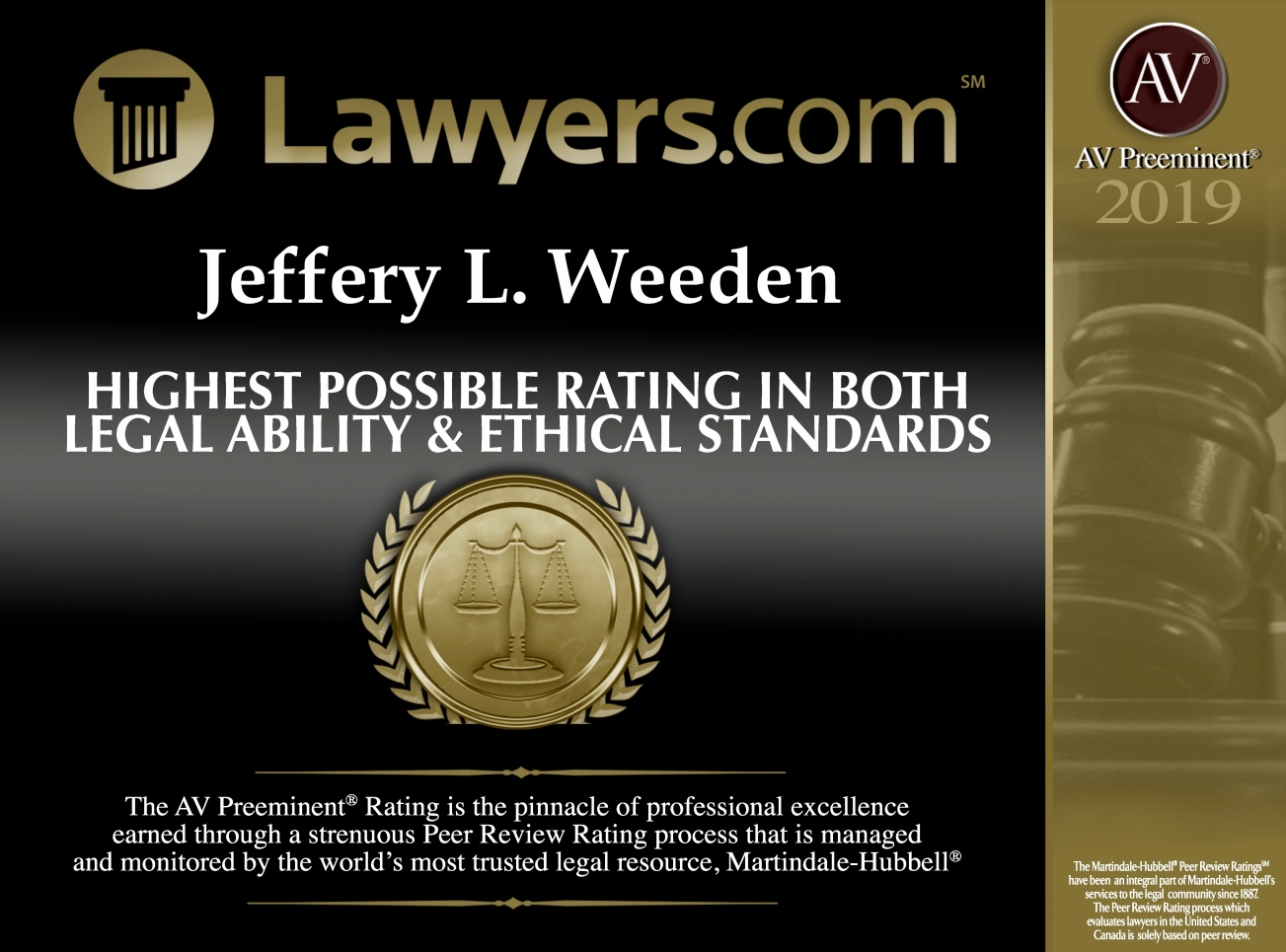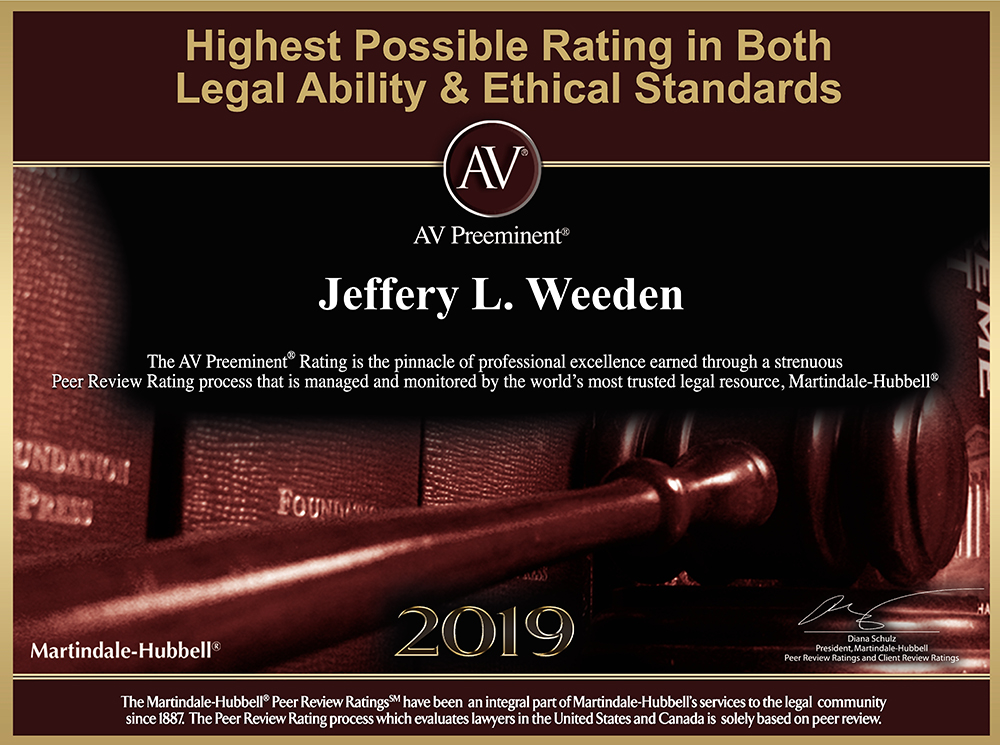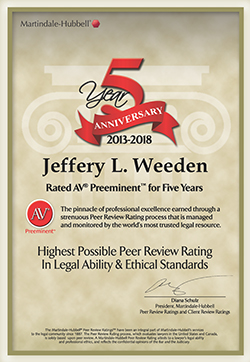Providing an Aggressive Defense for Colorado Gun Crimes and Weapons Offenses
In Colorado and across the country, second amendment rights are always a hot-button topic, but these days more than ever. As national attention turns to gun laws, state and federal courts are cracking down on weapon offenses with a vengeance. Only a seasoned gun crimes and weapons lawyer will know how to protect your rights when it comes to this complicated, incredibly sensitive area of the law. That’s why the best thing you can do after being hit with a weapons charge in Colorado is to contact an experienced Denver gun crime lawyer like Jeff Weeden at WeedenLaw.
As a respected Colorado criminal attorney, Jeff Weeden has defended numerous clients accused of weapons-related crimes, and he knows what it takes to defend you against your criminal charges, too. To explore your legal options and get straight to work building a powerful defense strategy against your weapons charges, call our Denver, CO law firm at (720) 307-4330 or contact us online today.
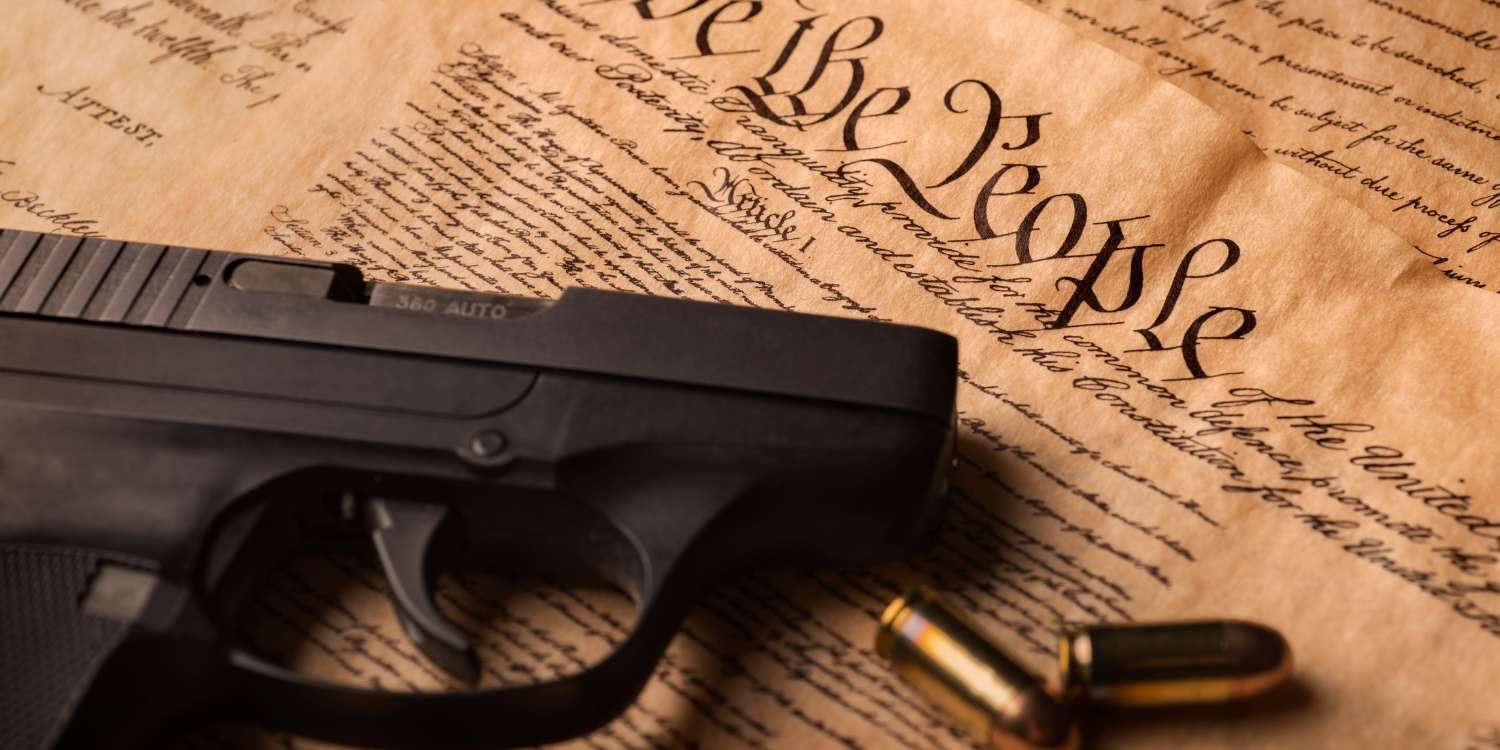
Understanding Your Second Amendment Rights
The Second Amendment of the United States Constitution guarantees individuals the right to “keep and bear arms,” forming a core part of our nation’s gun rights. These constitutional rights ensure that citizens have the ability to protect themselves and their property. However, individual states have the ability to place certain restrictions on their citizen’s gun rights while still aligning with federal law.
For example, states can require background checks, waiting periods, and licensing for gun purchases. They can also regulate the carrying of firearms in specific locations, such as schools and government buildings, and place restrictions on certain types of firearms or accessories.
Are Guns Legal in Colorado?
Yes, Colorado recognizes the Second Amendment right to bear arms, meaning guns are generally legal in our state.
However, state law enforces strict regulations regarding who can possess firearms and when and how they may be used. Failure to adhere to these laws can lead to firearms charges. There are a variety of circumstances that may impact the gravity of these charges – such as whether you had a concealed carry permit or if you are a convicted felon.
Colorado Gun Laws
Colorado’s gun laws are detailed in several statutes within the Colorado Revised Statutes (C.R.S.). Key statutes include:
- C.R.S. §18-12-105 covers the act of unlawfully carrying a concealed weapon and the unlawful possession of weapons in general.
- C.R.S. §18-12-105.6 addresses limitations on local ordinances regarding firearms in private vehicles.
- C.R.S. §18-12-111 deals with unlawful conduct involving firearms, including the unlawful purchase of firearms.
- C.R.S. §18-12-203 outlines the process and requirements for obtaining a concealed handgun permit in Colorado.
- C.R.S. §29-11.7-102 prohibits the registration of firearms in the state of Colorado.
- C.R.S. §33-6-125 pertains to the carrying and transportation of a loaded firearm in a motor vehicle.
Colorado Weapons Laws: Title 18
- If a person carries a weapon into a home, hotel room, business, or other area, the weapon must be displayed in plain view.
- Local jurisdictions are not permitted to place restrictions when a person wishes to travel with a weapon.
- Current and retired law enforcement officers are permitted to carry concealed handguns when they meet the law’s qualifications. These individuals are exempted from local and state laws that prohibit concealed firearm carrying.
Colorado Weapons Laws: Title 33
Under this law, a person is allowed to carry a weapon in his or her vehicle. However, it also restricts people, other than those who meet narrow qualifications, from possessing or controlling a firearm (with the exceptions of a revolver or pistol) inside a motor vehicle unless the firearm is not loaded.
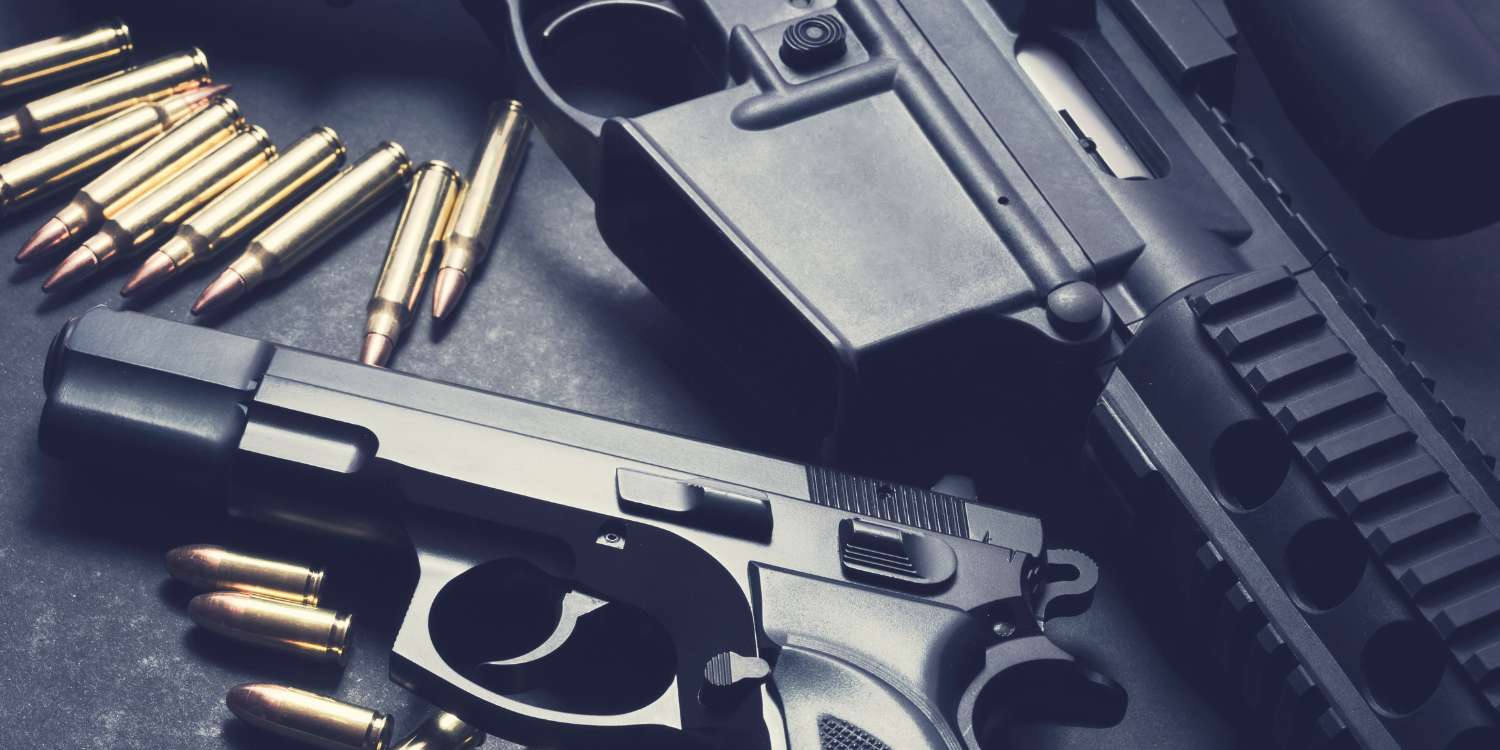
Do You Have to Register Guns in Colorado?
Colorado does not require a permit for the purchase of a firearm or require registration for them after the fact. Therefore, if you are in good standing with the law and are legally an adult, it is relatively easy to purchase a firearm and open carry in Colorado.
Is Colorado an Open Carry State?
If you ask any American citizen for a shortlist of issues important to the American public, they will almost certainly include gun control near the top of that list. One hot-button aspect of gun control is the country’s open carry laws. Open carry is the right of a citizen to carry a firearm openly in a public place.
Open carry laws will vary from state to state, but Colorado’s open carry laws are some of the most gun-friendly in the country. Colorado is an open carry state, meaning that citizens may carry firearms openly, with a few caveats.
Who Can Open Carry in Colorado?
As Colorado is an open-carry state, residents aged 18 and older are able to carry qualifying firearms. This means that under state law, eligible residents may carry a firearm without a license, permit, or registration in most cities. One noteworthy exception is Denver, which prohibits open carry following a change in legislation in 2004.
There is no license or permit required to open carry in Colorado, but generally, Colorado open carry laws allow for any person 18 or over in good legal standing to carry firearms openly. This includes both handguns and long guns.
Who Cannot Open Carry in Colorado?
Of course, there are restrictions regarding who may carry firearms, and which firearms they may carry. There are also some cities in Colorado that have stricter open carry laws or even completely prohibit open carry, such as here in Denver. Here is what you need to know about Colorado open carry laws, and how to avoid harsh prosecution for a weapons offense.
Colorado open carry laws prohibit some classes of people from carrying firearms, including if you:
- Have been convicted of or are under indictment for a felony, an attempt to commit a felony, or a domestic violence misdemeanor
- Are addicted to a controlled substance or chronically abuse alcohol to the point of impairment
- Have a Colorado protective order against you that forbids the possession of weapons
- Received a dishonorable discharge from the military
- Are in the country illegally or in the U.S. under a non-immigrant visa
- Have renounced your American citizenship
- Are a minor under the age of 18
- Are a resident of another state that does not have gun reciprocity with Colorado
Colorado Gun Laws for Non-Residents
So, can a non-resident open carry in Colorado? If you are traveling to Colorado from another state, you can lawfully carry a concealed weapon with a permit as long as your state recognizes Colorado’s permits for concealed weapons.
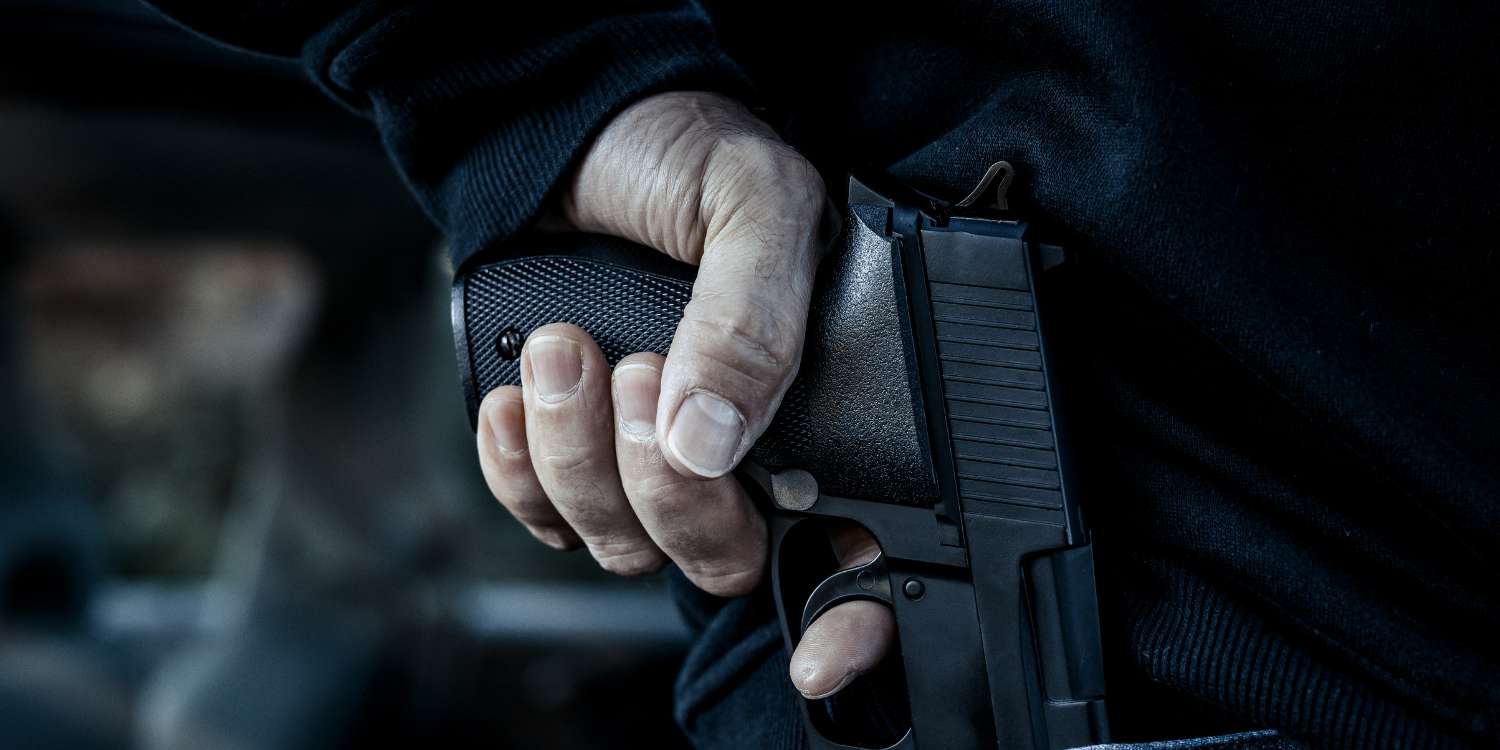
Where Am I Allowed to Open Carry in Colorado?
In addition to prohibiting certain individuals from owning a gun, Colorado also prohibits carrying a weapon in particular places. For example, firearms are strictly forbidden on school premises and in certain government buildings. Similarly, Colorado prohibits specific types of firearms, including shotguns and rifles.
Denver’s Open Carry Laws
Colorado is a “home rule” state, meaning that local governments have the right to make laws for and control their individual governments. So, although Colorado is relatively permissive when it comes to open carry laws, Denver is trending towards a more tourist and business-friendly atmosphere and has completely outlawed the open carry of firearms and the unlicensed open car carry of firearms. At least one of Denver’s suburbs, Castle Rock, has also prohibited open carry.
This means that openly carrying a firearm in Denver or carrying a firearm in your car without a license will result in weapons charges in Colorado.
Colorado Areas That Open Carry is Not Allowed
In Colorado, you are not allowed to open carry in places like:
- Federal property, such as the courthouse or the airport
- A public transportation facility; however, you are allowed to carry guns that are not loaded
- The grounds of public and private schools and universities
- Any local business or organization that prohibits firearms; it will be up to the individual business or organization to clearly denote on their entryway that they prohibit firearms
- Denver, or other municipalities that prohibit open carry
Can I Open Carry in Colorado National Parks and Forests?
Colorado open carry laws are slightly different with regard to National Parks and Forests and can be relatively complex. Because Colorado’s National Parks and Forests are a popular destination for outdoorsmen, it makes sense that many would want to carry firearms for recreational purposes. However, national parks are also considered federal property, meaning federal law puts a few restrictions in place.
Colorado Open Carry Laws: National Forests
Generally, firearms are allowed in national forests in Colorado, so long as they are not discharged within 150 yards of an occupied area, near a road, or in a manner deemed dangerous to other people or property.
Colorado Open Carry Laws: National Parks
With regard to national parks, Colorado open carry laws also prohibit open carry in any buildings that could be described as federal facilities where there are federal employees present. This usually encompasses the national parks vsitor centers, administrative offices, and maintenance buildings. Buildings that fall under this category will be clearly marked at their entrance.
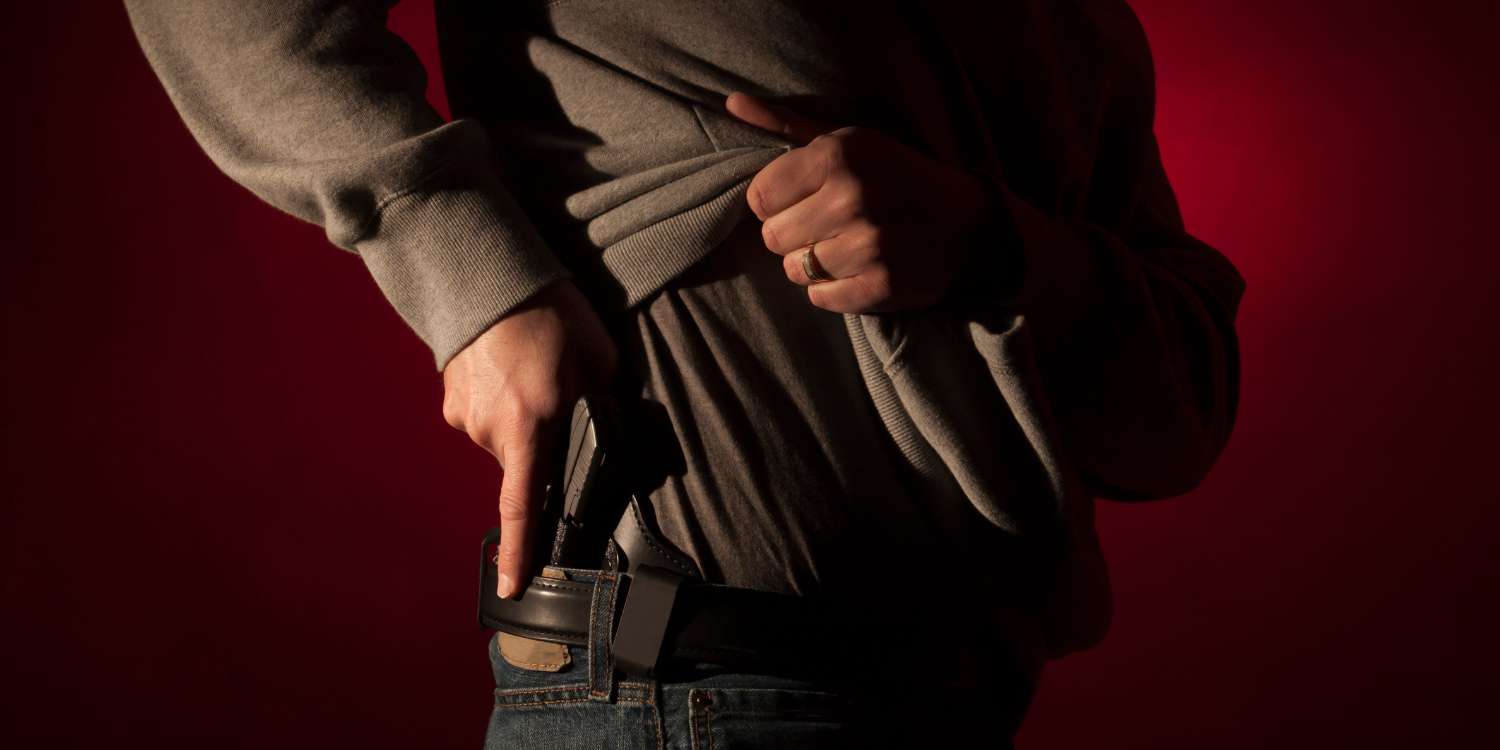
Colorado Concealed Carry Laws
It is possible to obtain a permit to carry a concealed weapon in Colorado, which will allow you to carry both concealed and openly in any place not otherwise prohibited by the law.
There are, however, a few restrictions as to who can receive this license. For example, it can only be issued by the state to persons 21 or older who are not prohibited by law from carrying firearms.
What You Can’t Do With Weapons in Colorado
Even with Colorado’s relatively lenient gun laws, there are still certain acts that can lead to criminal charges. For instance, committing any of the following acts can lead to criminal prosecution:
- Carrying a weapon on school grounds, in secure airport areas, in many public buildings, or while riding on a snowmobile without a permit
- Discharging a weapon inside National Forest areas when within 150 yards of an occupied area, campsite, building, residence, or developed recreation site
- Discharging a weapon inside National Forest areas when shooting across a Forest Development road or body of water
- Discharging a weapon inside National Forest areas while placing another person or property at risk for damage or injury
- Discharging a weapon within or into a cave
- Possessing a weapon while inside a National Forest visitor center, maintenance building, or administrative office
Punishable Colorado Weapons Charges
Due to the complexity of Colorado gun laws, there are a huge variety of behaviors that may qualify as weapon or gun crimes. Some of the most common weapons charges in this state include:
- Illegal Discharge of a Weapon – This offense generally involves knowingly or recklessly firing a weapon into a building or motor vehicle that is occupied by a person. Under Colorado law, illegal discharge of a weapon is considered a felony.
- Unlawfully Carrying a Concealed Weapon
- Use or Possession of Incendiary Devices or Their Components – This refers to dangerous weapons that can start fires or cause injury to others.
- Possessing a Dangerous Weapon – In Colorado, it is a felony to possess certain types of dangerous weapons. Dangerous weapons include short shotguns, short rifles, machine guns, firearm silencers, and ballistic knives where the blade is forcefully projected with a spring-loaded device or explosive charge.
- Unlawfully Providing a Weapon to a Juvenile
- Possessing an Illegal Weapon – Possession of illegal weapons is a typically considered a misdemeanor offense. Colorado considers illegal weapons to include switchblade knives, metallic knuckles, gravity knives, gas guns, blackjacks, and other dangerous weapons.
- Unlawful Possession of Weapons at a School, College, or University
- Possessing a Weapon as a Previous Offender – In Colorado, convicted felons or anyone who has previously pleaded guilty to a felony or attempted felony may face felony charges for possessing a firearm illegally.
- Unlawful Use of a Stun Gun
- Violating a Local Ordinance Regarding Firearms in Private Vehicles
- Possessing a Handgun as a Minor – Except in certain circumstances, it is illegal for anyone under the age of 18 to possess a handgun in Colorado. This is typically considered a misdemeanor juvenile offense in Colorado.
- Permitting a Juvenile to Use a Weapon
- Illegal Purchase of Firearms – This crime involves purchasing or otherwise obtaining a firearm for a person who you know or reasonably should know is prohibited from owning a firearm.
- Possession of a Defaced Firearm – A defaced firearm is one in which that firearm’s serial number or other identifying marks have been altered or removed.
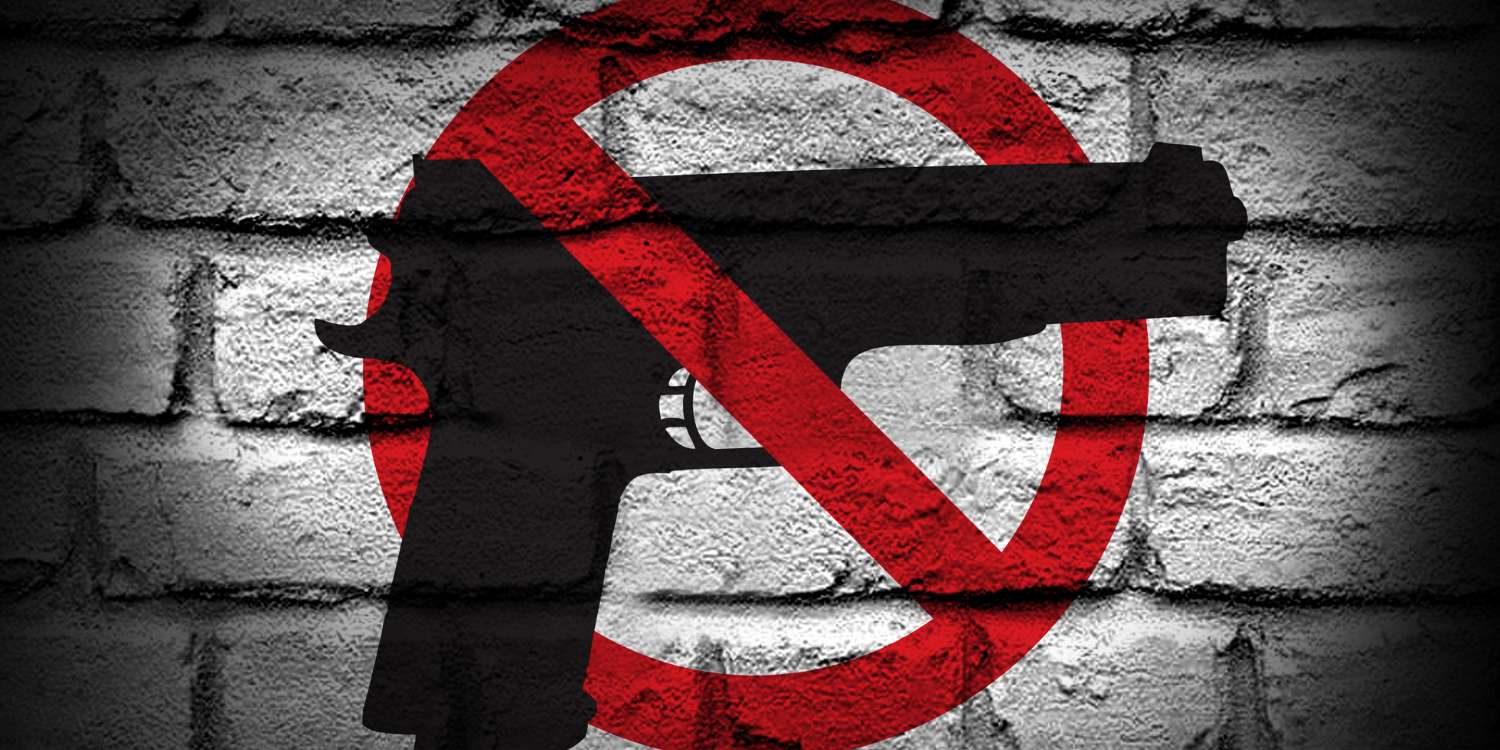
What is the Penalty for a Weapons Charge in Denver?
While the previous crimes represent some of the most common, there are many other actions that constitute a weapon charge in Colorado. Criminal charges for these offenses can range from misdemeanors to felonies, depending on the nature and circumstances of the crime.
For example, individuals found guilty of carrying a concealed weapon without a permit face Colorado Class 1 misdemeanor charges, which can result in up to a year in jail and fines up to $1,000. Repeat offenders or those involved in more serious offenses may face harsher penalties, including felony charges with longer prison sentences and higher fines. Regardless of the actual offense, all weapons crimes carry the possibility of severe penalties like prison or jail time, fines, probation, and a permanent criminal record. For felony convictions, you may also face the possibility of losing your gun rights.
Federal law also plays a role in prosecuting gun-related crimes. For example, a person convicted of the prohibited use of a firearm or possession of a weapon on federal land or using a firearm in the commission of a federal offense can face even more stringent penalties. Repeat offenders of federal crimes also often receive significantly increased penalties.
To learn more about any charge related to a weapon that you are up against, get in touch with our Denver criminal defense law office as soon as possible.
How Do I Beat a Denver Weapons Charge?
Beating weapons charges in Denver requires aggressive representation from a skilled Denver gun crime attorney like Jeff Weeden. Here at WeedenLaw, attorney Jeff Weeden and his legal team can examine the details of your case, challenging any procedural errors or violations of your rights. Defenses may include proving that you did not knowingly possess the alleged deadly weapon or illegal weapon or that there was a lack of intent to use it unlawfully.
An effective legal strategy involves scrutinizing the evidence, cross-examining witnesses, and ensuring that the charges do not infringe on constitutional protections. With thorough preparation and an aggressive criminal defense strategy, Jeff Weeden can help you achieve the best possible outcome for your weapons offense case.
Defense Strategies for a Weapons Charge in Colorado
These are some of the most common defenses a skilled lawyer may use to get your charges reduced or dismissed:
- Unlawful Search and Seizure – The police failed to follow protocol during your arrest.
- Second Amendment Violations – Your right to bear arms is protected by the Second Amendment to the U. S. Constitution.
- Self-Defense – You may have used the weapon to protect yourself.
- Defense of Others – You may have used the weapon to protect another person or group of people.
- Exemption – Under certain circumstances, you may qualify for an exemption.
Of course, there are all kinds of nuances that are important to understand when it comes to gun crimes in Denver – both to avoid violating the law and to fight back if you do end up getting charged with something.
Regardless of the circumstances, if you have been arrested or charged with any kind of crime involving a weapon in Colorado, you may be facing some of the toughest penalties in the criminal justice system. Weapons violations come in many forms, but they all carry the possibility of incarceration, heavy fines, and a life-long criminal record. An experienced Denver criminal defense lawyer can help you fight or mitigate these potential penalties.
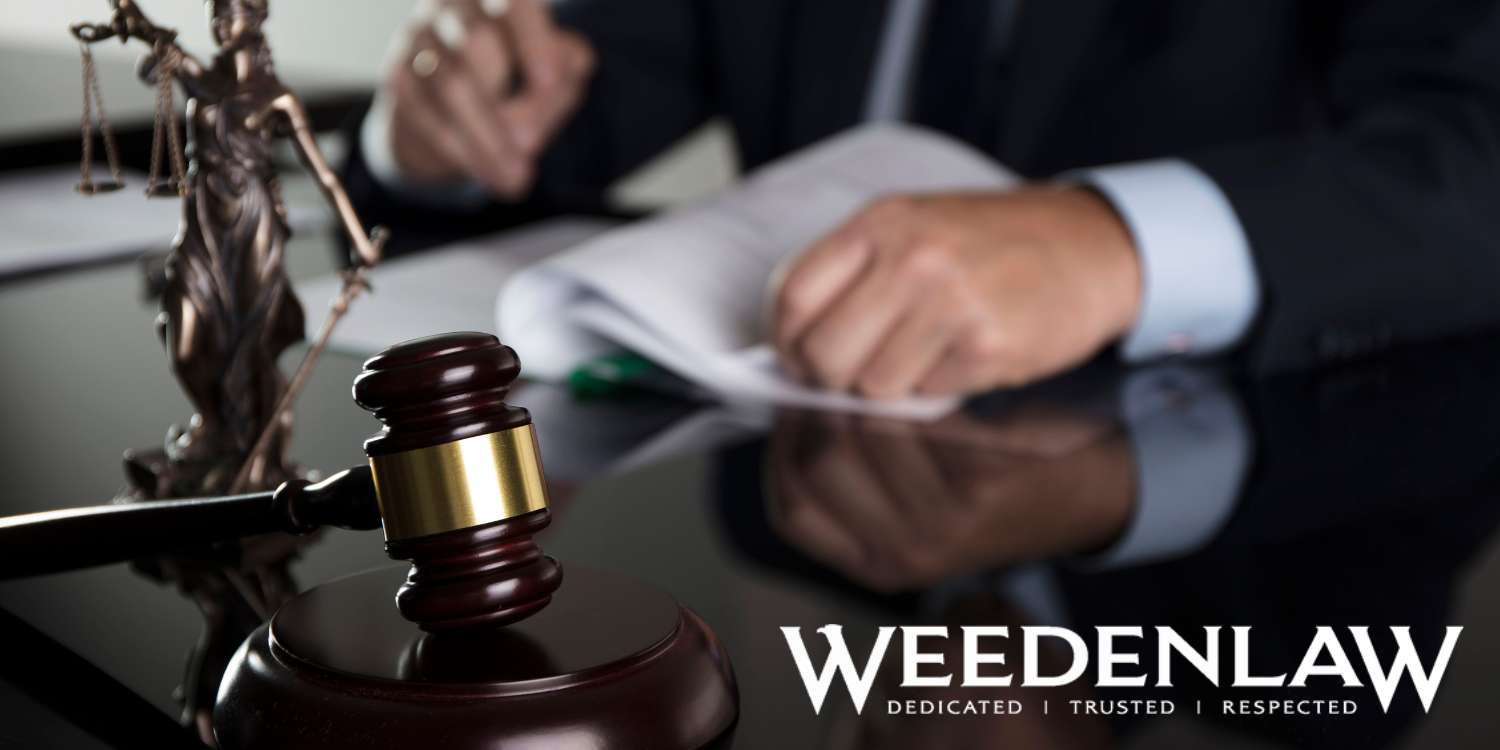
Top Denver Weapons Lawyer Jeff Weeden Helps With Weapons Charges
When it comes to a weapons-related charge in Colorado, time is of the essence. The sooner you speak to a Denver gun crime lawyer, the sooner your legal team can begin gathering evidence, witnesses, and expert opinions to start building your weapon or gun crime defense.
The trusted criminal defense lawyers at WeedenLaw are not afraid to take on even the trickiest weapons cases to protect your rights and freedom. We have extensive knowledge when it comes to both state and federal crimes regarding the illegal use or possession of a weapon, meaning we know what it takes to put up a strong and aggressive defense.
At WeedenLaw, we offer our clients a free consultation, during which we will evaluate your case and help you understand your legal options. Should you decide to work with him, Jeff Weeden will fight tirelessly in an effort to have your weapons charge reduced or dismissed. Call our law office today at (720) 307-4330, email jlweeden@weedenlaw.com, or send a message online to get started.







